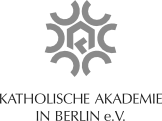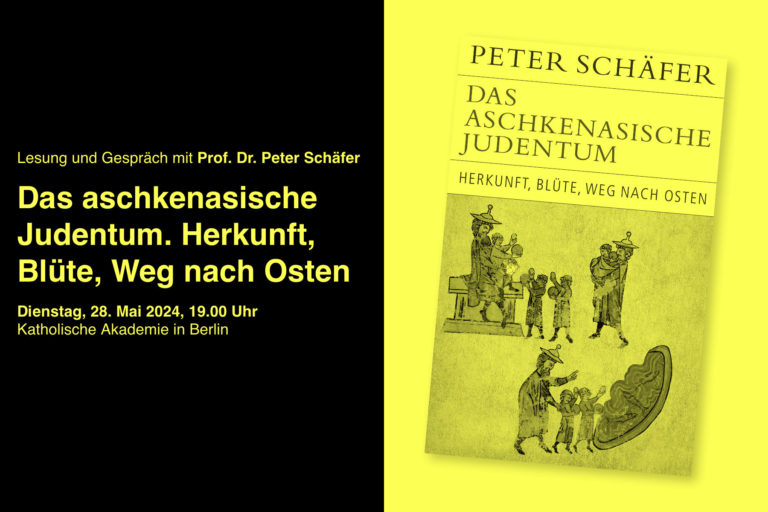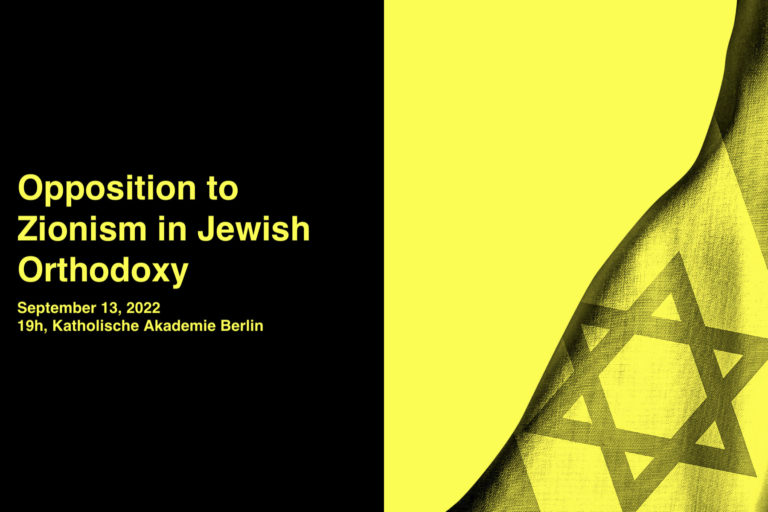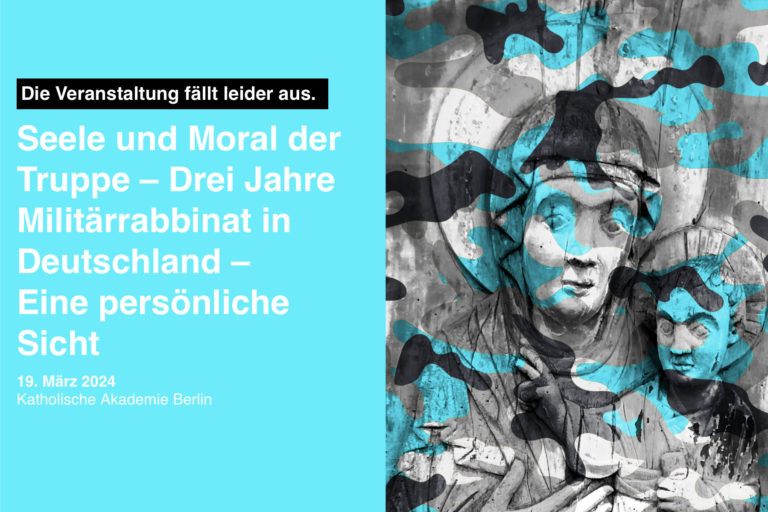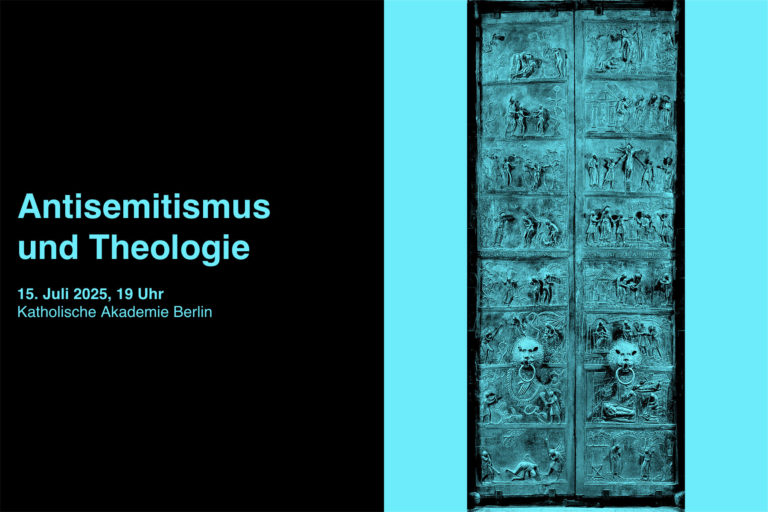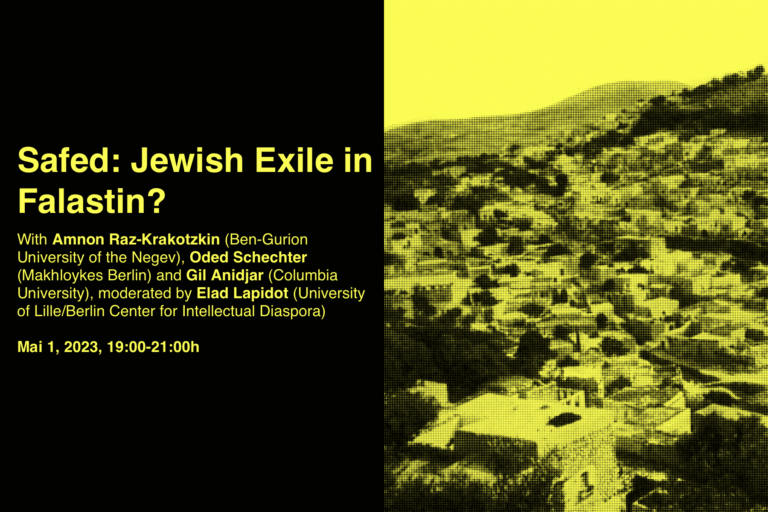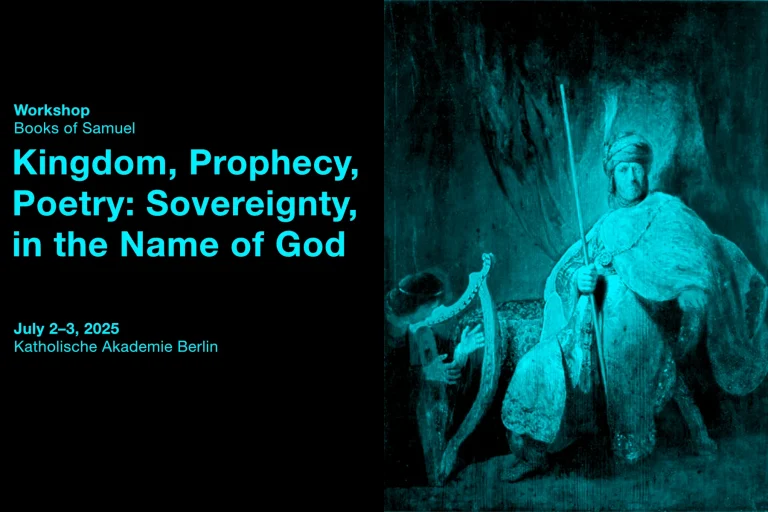17th Conference of the International Society for the Study of European Ideas (ISSEI)
The Role of the Intellectual in Times of Turmoil:
Ways of Looking at Europe’s Troubled Geist
July 3–6, 2023
The Role of the Intellectual in Times of Turmoil: Ways of Looking at Europe’s Troubled Geist
17th Conference of the International Society for the Study of European Ideas (ISSEI)
July 3–6, 2023
Catholic Academy of Berlin, Hannoversche Str. 5, 10115 Berlin
The Berlin Center for Intellectual Diaspora at the Catholic Academy in Berlin is honoured to host this year’s ISSEI conference. As part of the Cohesion through Conflict project we initiate seminars and conferences to discuss interreligious, secular—religious, and cross-cultural dialogues. One of our central aims is to foster debates even on highly controversial topics, for we are convinced that only by embracing a candid attitude that gives voice and ear to any legitimate perspective in current-day conflicts can we create a free, kind and fearless cohabitation of peoples and cultures that are very different from each other. If viewed from the outside by diasporic Europeans and citizens of extra-European cultures, Europe is still seen as a very desirable place in the world. It is, however, haunted and troubled by many conflicts which sometimes affect its very heart. It appears that views from the outside can sometimes radically differ from or conflict with the views from within Europe. But this kind of discrepancy is exactly what we wish to explore more thoroughly by inviting our guests from all over the world.
Founded in 1984 as an international intellectual forum by the late Ezra and Sasha Talmor, who were founding members of Kibbutz Nachshonim in Israel and the founding editors of the interdisciplinary journal The European Legacy: Toward New Paradigms (published by Routledge, UK), ISSEI holds together a large group of scholars who look at Europe and its rich past from a variety of disciplines and points of view. Over almost 40 years the journal along with ISSEI’s conferences have created a cross-cultural and cross-disciplinary tradition for the exchange of ideas between practicing academics, artists, and public figures actively engaged in local and global political projects. Often held at smaller universities on the “margins” of Europe and attended by intellectuals who have a history of “yearning” for Europe, these conferences have given rise to a continuous discourse of its own kind. This ISSEI conference—held for the first time in Germany—will pay particular attention to the meaning of secular and postsecular aspects of Europe and the West and to the self-positioning of intellectuals in times of turmoil.
Organizing committee
Dr. Gesine Palmer (Theology), conference co-chair, Berlin
ISSEI / The European Legacy:
Dr. Edna Rosenthal, editor and conference co-chair (Modern English Literature)
Dr. Ruvik Rosenthal (Sociolinguistics), Tel Aviv
Professor Wayne Cristaudo, editor and conference co-chair (Philosophy and Political Science)
Neri Sevenier, editorial assistant and conference coordinator, Tel Aviv
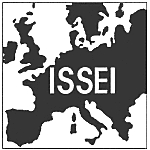
Organisation
Isabel Feichtner, University of Würzburg / THE NEW INSTITUTE
Alexandra Kemmerer, Max Planck Institute for Comparative Public Law and International Law Heidelberg
Stephan Steiner, Catholic Academy of Berlin
Livestreams on Youtube
The Crisis of Transcendent Values: Higher Education at a Crossroads
July 3, 7:30 pm
Europe at a Crossroads and the Political Relevance of Intellectual Dialogue
July 4, 7:30 pm
Guests from ISSEI:
Prof. Dr. Martin C. K. Chung (Government and International Studies), Hong Kong
Prof. Dr. Douglas Cremer (Modern History and Philosophy), Woodbury University, USA
Prof. Dr. Theodor Damian (Theology and Philosophy), Metropolitan College of New York
Prof. Dr. Francis Raska (History and North American Studies), Prague
Dr. Benedikt Haller (Foreign Policy), Berlin
Dr. Simone Raudino (Political Science and Economics), Brussels
Prof. Dr. Marianna Papastephanou (Philosophy of Education), Cyprus
Dr. Gerson Gal (Social and Political Science), Haifa
Prof. Dr. Heinz-Uwe Haus (Theatre), University of Delaware
Prof. Dr. Peter Zazzali (Theatre), James Madison University, USA
Prof. Dr. Iddo Landau (Philosophy), Haifa
Prof. Dr. Victor Castellani (Classics), University of Denver
Prof. Dr. Jürgen Lawrenz (Philosophy), University of Sidney
Keynote speakers
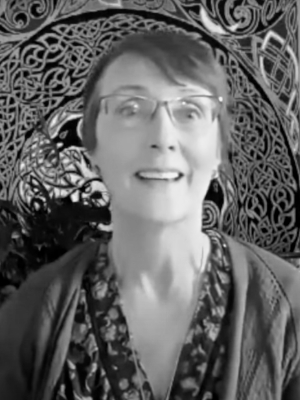
Dr. Laurie Johnson is Professor of Political Science and Director of the Primary Texts Certificate at Kansas State University, USA, and Associate Faculty Editor of Live Ideas Undergraduate Journal. She is the author of seven books and numerous book chapters and articles. Most of her work has involved developing a thorough understanding and critique of classical liberal theory, and includes works on Hobbes, Locke, Rousseau and Tocqueville. Her most recent book, Ideological Possession and the Rise of the New Right: The Political Thought of Carl Jung, was published in 2019 by Routledge. She is currently working on a new book, Can Anything Fix This? Towards Repairing Our Rural/Urban Divide, which will be published by Wipf & Stock. Her teaching includes courses on the history of political philosophy, ideologies, and environmental political thought. She also provides political philosophy and political theology content weekly on her Political Philosophy YouTube channel, currently with 14,000 subscribers and over 100,000 hours of watch time, and its associated podcast.
The Crisis of Transcendent Values: Higher Education at a Crossroads
According to Laurie M. Johnson, the question of “intellectual diaspora” does not affect our interfaith and intercultural dialogues only, but has become vital for sustaining the very core of Western education. She writes:
The faith in progress that propelled the West for over four centuries is in decline due to its own success. Neoliberal individualism and secularity have left people feeling isolated and without a sense of higher meaning and purpose, leading some to reject Enlightenment values in favor of various forms of traditionalism and even neofascism. As professor for political science at an American state university, Laurie M. Johnson experiences the crisis of higher education in her daily work and copes with it on many levels. Faculty struggle to prove their utility and relevance, as taxpayers sense that universities cannot guarantee their graduates a decent living in a world of automation and globalized production. Students, Johnson says, are largely inured to appeals to transcendent values because they have heard nothing but calls to be “practical.” A student who is genuinely interested now stands out as very special. Faculty are no longer encouraged to care about the character-building nature of a liberal education. In their research, they are urged to emphasize those projects through which they can obtain funding, often from corporate and government sources. Furthermore: in the United States, ideologically based harassment and censorship of unpopular ideas takes place regularly and is a major deterrent to pursuing a career in higher education. As a result of these trends, the West’s ability to produce responsible and effective democratic citizens is in question.
Given these challenges and more, can intellectuals still make a difference within a university setting? Many faculty have taken to social media and other ways of getting their ideas around the increasingly steep paywalls of academic publications and the de facto censorship of real discussion in their institutions. Some of the most vibrant exchanges of ideas are now happening in alternative settings, largely online. These venues draw in people who are interested and trying their best to learn something they are unlikely to learn at universities. But are such alternatives truly sustainable or good enough? Higher education is at a crossroads in which even this “retreat and regroup” strategy is highly problematic. The question how far to go in order to reach the hearts and minds of future leaders is one we share all over the Western world.
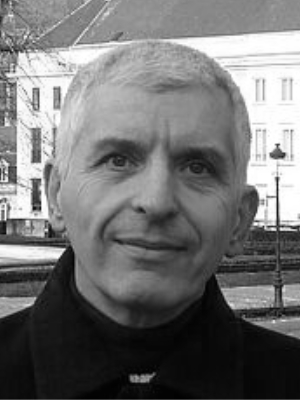
Dr. Patrice Canivez is Professor of Philosophy at the University of Lille in France. He has a particular interest in the concepts of transnational democracies and has published widely on political philosophy, especially of Eric Weil, Paul Ricoeur, Michel Foucault, Hannah Arendt and others.
Patrice Canivez sees the Double Crisis of Europe along the following lines:
Europe finds itself in the midst of a double crisis: Not only is there a debate about how democratic and humanist values should be interpreted—which is normal—it also seems that these values are no longer widely shared. Significant sections of the public no longer take democratic principles and the rule of law for granted. As a result, the use of violence is no longer taboo, not only in international relations but also within our own societies. In his talk, Patrice Canivez will situate the role of intellectuals in this context by examining:
- the task of interpreting the current historical situation and raising the level of collective awareness with regard to problems that require collective action (e.g., climate change, the reduction of gender and cultural discrimination, the prevention of armed conflicts, etc.);
- the “universalization of tradition,” i.e. the hermeneutic process by which a tradition (ethical, religious, political, etc.) reinterprets itself in a way that makes it understandable and meaningful for all other traditions;
- the impact that the practice of dialogue, as understood in the human and social sciences, should have on actual political discussion;
- the role the human and social sciences have in articulating, within a sensible discourse, the demands for more justice and for a meaningful existence that arise spontaneously in the form of collective feelings, emotions, etc.
Participants

Patrice Canivez is Professor at the University of Lille. Together with Sequoya Yiaueki, he is the editor of the series “Etudes weiliennes” (Weilian Studies) at the “Presses Universitaires du Septentrion” (Lille). He has published several books on Éric Weil and various studies on Aristotle, Kant, Hegel, Rousseau, Hannah Arendt, Paul Ricoeur, as well as books and articles on problems of contemporary political philosophy (the issue of education for democratic citizenship, the specificity of political action, the problem of national identities and nationalism, the logic of compromise making, etc.). Forthcoming: Eric Weil. Philosopher avec Critique. Articles et notes critiques publiés dans la revue Critique, Patrice Canivez, Gilbert Kirscher, Sylvie Patron (Eds), Paris, Vrin, Autumn 2023.
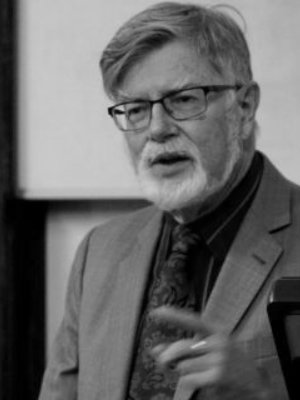
Victor Castellani received his PhD in the Classics (Greek and Latin) at Princeton University in 1971. He is currently a professor at the University of Denver and has received many awards along the way, including being featured in Who’s Who annual listings of the categories Education, America, and the West.
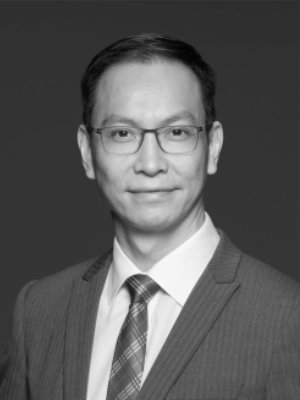
Martin Chung is a political scientist and historian of conflict and peace in contemporary Europe and East Asia. His research interests revolve around the successes and failures of political reconciliation in different historical and relational contexts. His works are interdisciplinary and often comparative, researching at the intersections of politics and religion, collective memory and identity, public apologies and transitional justice. His articles have appeared in Parliamentary Affairs, International Journal of Transitional Justice, British Politics, Jahrbuch des Dubnow-Instituts and Jahrbuch für Politik und Geschichte. Chung is the principal investigator of “Reconciliation and Its Resentments: The Suppression of Justice and Truth Recovery in Germany, Northern Ireland, and Western Balkans”, a four-year project (2023-2026) funded by Hong Kong’s Research Grants Council.
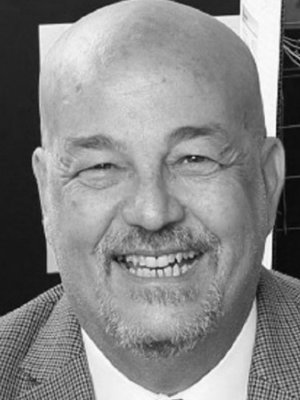
Douglas J. Cremer, PhD, has more than thirty years of experience as an educator in the College of Liberal Arts and Sciences, Woodbury University, Burbank, Southern California, with twelve years as academic dean and seven as department chair. He has extensive teaching experience in several European countries (France, Germany, Italy, and Spain) and in central and northern China. He has also served, since 2014, as a permeant deacon in the Roman Catholic Archdiocese of Los Angeles. His writings and reviews have been published in The European Legacy, Worship, Catholic Historical Review, Journal of Church and State, Journal of the History of Ideas, and America: The Jesuit Review. His most recent works include studies of liturgical leadership and community, patriarchy and religion, workplace wellbeing, Catholic feminism, and justice and reconciliation in the Catholic Church.
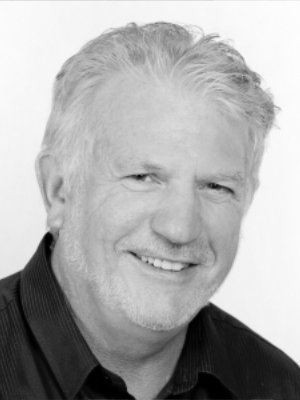
Wayne Cristaudo is a retired Professor who is a co-Editor of The European Legacy. He was a lecturer and senior lecturer at Adelaide University, Associate Professor and Director of European Studies at the University of Hong Kong, and Professor of Political Science at Charles Darwin NT. He has written and lectured on Political Philosophy, International Relations, the History of Ideas, and Literature. Along with five monographs, he has also written several journal articles, edited books and special journal issues. He now writes book reviews for the European Legacy and is a regular contributor to the Postil magazine.
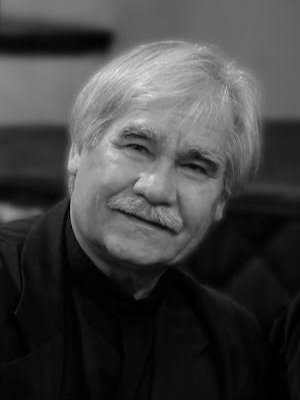
Theodor Damian, PhD, is a theologian, writer and editor. He is Professor Emeritus of Human Services and Education at the Metropolitan College of New York. He is the recipient of several prestigious awards for his work in the United States and in Romania. He is the founder and president of the Romanian Institute of Orthodox Theology and Spirituality in New York; editor of Lumina Lina. Gracious Light, a review of Romanian spirituality and culture, as well as of the journals Symposium and Romanian Medievalia. In addition, he is Senior Fellow of the Institute of Interdisciplinary Studies, Pasadena, CA, and of the Sophia Institute, New York, as well as President of the American branch of the Academy of Romanian Scientists.
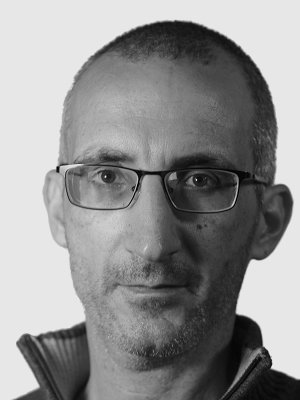
Gal Gerson teaches political theory and the history of political thought at the University of Haifa’s School of Political Sciences. He is the author of several articles on liberalism, gender, and the interface between political thought and psychoanalysis, and several books, including Individuality and ideology in British object relations (Routledge, 2021).
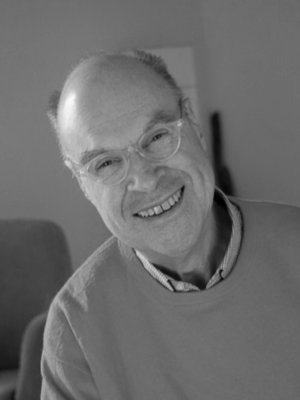
Frank Hahn is a Gestalttherapist, mediator and freelance author based in Berlin. He is the chairman of the cultural association “Spree-Athene.V.”, which organizes public lectures on philosophical, religious, historical and literary subjects, with a special emphasis on Jewish studies and intercultural philosophy. His book Der Sprachevertrauen, der Totalitätentsagen – Annäherungenan Franz RosenzweigsSprachdenken (Trusting the language – renouncing the totality: Approaches to Franz Rosenzweig’s speech) was published in 2013.
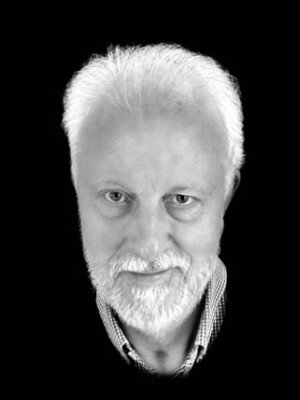
Benedikt Haller holds a Ph.D. in philosophy from Tübingen University. He is a former German Ambassador with a professional focus on Russia and Eastern Europe.
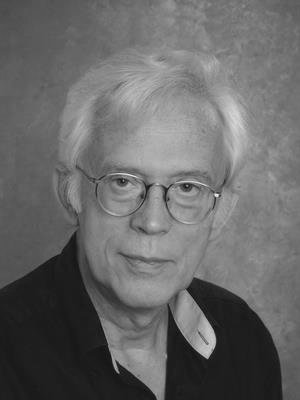
Heinz-Uwe Haus is an internationally renowned director who received training in Germany at both the Film Academy Potsdam-Babelsberg and Humboldt Universität. He is the founding member of the East German Directing Institute and head of its Directing Department, and has directed for the National Theatres of Greece, Cyprus, and Turkey, and worked with companies from Chile, Finland, Italy, South Korea, Canada, and the USA. He is currently a professor at the University of Delaware.
He has chaired the Intercultural group of ISSEI (International Society for the Study of European Ideas) since 1994 and since 1996 has been a member of its Executive Committee.

Laurie Johnson is Professor of Political Science and Director of the Primary Texts Certificate at Kansas State University, and Associate Faculty Editor of Live Ideas Undergraduate Journal. She is the author of seven books and numerous book chapters and articles. Most of her work has involved developing a thorough understanding and critique of classical liberal theory, and includes works on Hobbes, Locke, Rousseau, and Tocqueville. Her most recent book, Ideological Possession and the Rise of the New Right: The Political Thought of Carl Jung, was published in 2019 by Routledge. She is currently working on a new book, Can Anything Fix This? Towards Repairing Our Rural/Urban Divide, which will be published by Wipf & Stock.
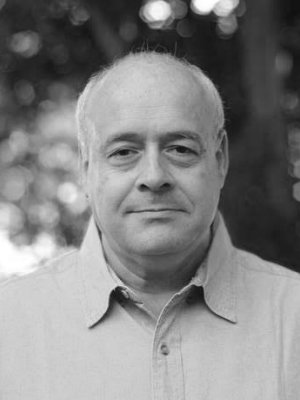
Iddo Landau is a professor of philosophy at the University of Haifa, Israel. He has published on existentialism, modern continental philosophy, and meaning in life. He is author of Finding Meaning in an Imperfect World (Oxford University Press, 2017) and editor of The Oxford Handbook of Meaning in Life (forthcoming).
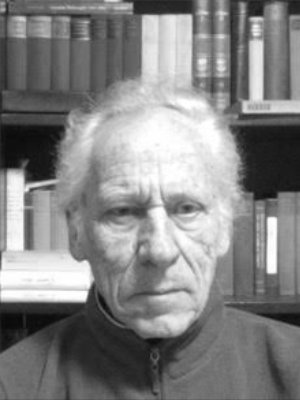
Jürgen Lawrenz gained his PhD on the philosophy of Leibniz at Sydney University, with his thesis on “Leibnizian Double-Ontology” initiating a new category in Leibniz scholarship. He has since published seven books on philosophy, including two book-length studies of Leibniz and an account of his theory of the evolution of life and mind. In 2011 he became the first Australian scholar to lecture at the Leibniz Institute at Hannover.
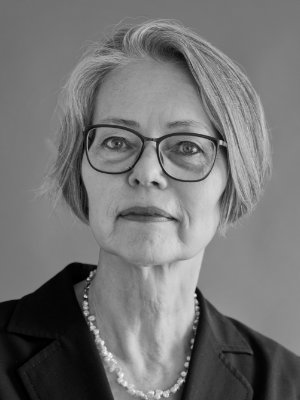
Gesine Palmer studied Lutheran Theology, Jewish and History of Religions in Hamburg, Berlin, and Jerusalem. PhD in Historical Theology, FU Berlin, in 1996 with a dissertation on John Toland and his interpretation of St. Paul. Academic work at the FU (1995-2001) and at the FEST Heidelberg (2003-2006). Free-lanced author and speaker since 2007 with Büro für besondere Texte Berlin. Several, manifold publications. Member of the Scientific Board of the International Franz Rosenzweig Society and of the Yearbook’s Editorial Board. Since 2021 in a part time position at the Berlin Center for Intellectual Diaspora.
Publications: Fragen nach dem einen Gott (Ed.), Tübingen (Mohr/Siebeck) 2007. Tausend Tode. Über Trauer reden, Berlin (PalmArtPress) 2020. Vielfalt statt Konsens in den Religionen Schwarzach (Vier-Türme-Verlag) 2021. „Othering Himself: On Rosenzweig’s Self-Positioning Towards Christianity”, in Rosenzweig Yearbook 13, Transcendence and Revelation, Baden-Baden (Alber-Nomos) 2023, 229-246.
More: https://gesine-palmer.de
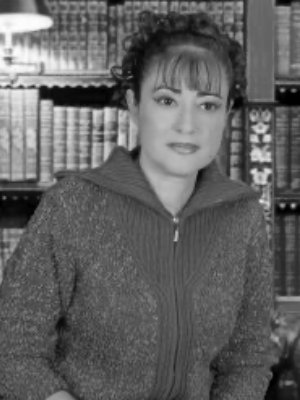
Marianna Papastephanou has studied and taught at the University of Cardiff, UK. She has also studied and researched in Berlin, Germany. She currently teaches Philosophy of Education in the Department of Education at the University of Cyprus. She has, for four years, been Professor II in the Department of Education at Oslo University, Oslo, Norway. She has written articles on the ‘modern versus postmodern’ divide, utopia, the Frankfurt School and epistemological, linguistic and ethical issues in education. She is the editor of K-O Apel: From a Transcendental-Semiotic Point of View (Manchester University Press, 1997), and the author of: Educated Fear and Educated Hope (Sense Publishers, 2009); and Thinking Differently About Cosmopolitanism (Paradigm, 2012/Routledge, 2015).
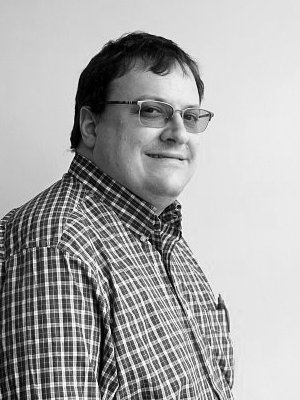
Francis D. Raška is Associate Professor of Modern History at the Institute of International Studies, Faculty of Social Sciences, Charles University in Prague. His scholarly interests include Czech and Slovak diasporas in North America and Western Europe,the post-World War II expulsion of Germans from East-Central Europe, migration and diasporas, dissent as a phenomenon in Europe and North America, and the politics of human rights.
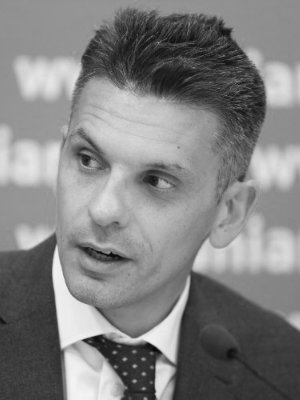
Simone Raudino received his PhD in international political economy at the University of Hong Kong, and has since been a co-founder of the non-profit organization Bridging Gaps (which promotes intercultural, interfaith and inter-ethnic dialogue) and a visiting professor at the Kyiv School of Economics. He currently works for the European Commission in Brussels. His publications include Development Aid and Sustainable Economic Growth in Africa (Palgrave, 2016) (author) and Beyond the Death of God (University of Michigan Press, 2022) (co-editor)
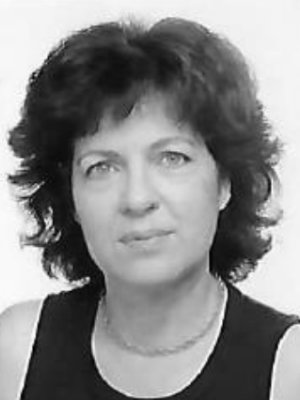
Edna Rosenthal, Ph.D., was born and raised in an Israeli kibbutz. She studied English literature at Tel-Aviv University (BA), at St. Antony’s College, Oxford (M.Phil.), and at Bar-Ilan University (PhD). For 25 years she taught English at the Kibbutzim College of Education in Tel-Aviv. In 2004, alongside her teaching, she became the co-editor of TheEuropean Legacy: Toward New Paradigms (published from 2000 by Routledge, UK). This is the official journal of the International Society for the Study of European Ideas, ISSEI, which since its foundation in 1984 has organized 16 international conferences in European universities. Her publications include Aristotle and Modernism: Aesthetic Affinities of T. S. Eliot, Wallace Stevens, and Virginia Woolf ; editor of Sascha Talmor, Living Novels: A Journey through Twentieth-Century Fiction; and co-writer with Ruvik Rosenthal, Silent Scream: The Life and Death of Eran Shacham (Hebrew).
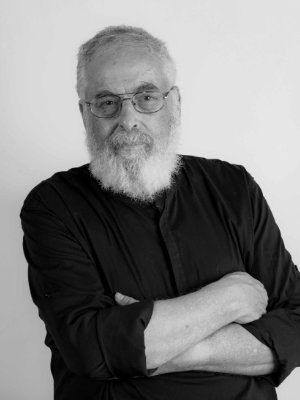
Ruvik Rosenthal is s a well-known Israeli writer and linguist. He has published 24 books on various topics, as well as hundreds of articles, essays, and journalistic features. He is known for his linguistic writing for which he has won the prestigious Sokolov Award. For his best-selling children’s books, he has won the Ramat-Gan Prize for Children’s Literature. Over the years in his books and articles Rosenthal deals with the core-issues affecting Israel: wars, bereavement, social conflicts, and the cultural and ethnic diversity of Israeli society.
Rosenthal has been praised for his rich, flowing style and his profound insights to the human condition.
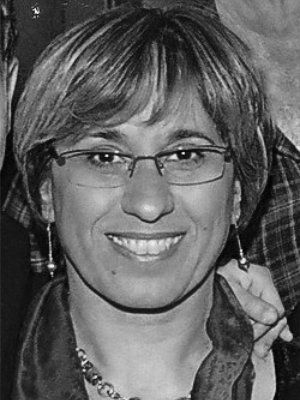
Neri Sevenier-Gabriel, MA,is a qualified translator and interpreter. For many years she taught in the Department of Translation and Interpreting Studies at Bar-Ilan University. Following her groundbreaking Master’s dissertation, “Court Interpreting in Criminal Judicial Proceedings in Israel: A Study in Professionalism”, she became the consultant to the Israel Administration of the Courts in a national project to improve and professionalize court interpreting. Her Thesaurus of Idioms and Phrases English-Hebrew-English (2004) was the first bilingual dictionary of its kind to be published in Israel. Since 2014 she has been the editorial assistant of The European Legacy.
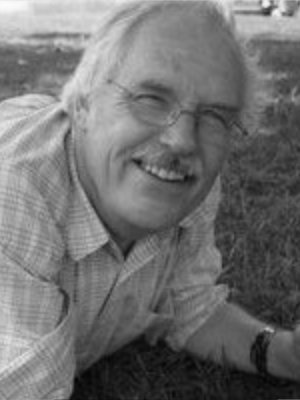
Engelhard Weigl studied German Literature and philosophy in Hamburg and Bochum and his PhD thesis was on Jean Paul. He was a research assistant at the Max-Planck-Institute for Human Development in Berlin from 1979 to 1983, a lecturer at the University of Tokyo from 1983 to 1988, and since 1988 has been a lecturer at the University of Adelaide, Australia.
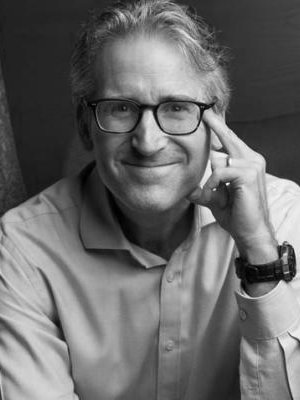
Peter Zazzali is Professor of Theatre and the Director of James Madison University’s School of Theatre and Dance. Prior to JMU, he was Senior Lecturer of Acting and the Programme Leader of BA (Hons) Acting at Singapore’s LASALLE of the Arts and Associate Professor of Theatre at the University of Kansas. His research has appeared in numerous journals and edited volumes including Theatre Topics, Theatre Journal, Journal of Dramatic Theory and Criticism, and Theatre Research International. His books, Acting in the Academy: the History of Professional Actor Training in US Higher Education (Routledge 2016) and its sequel, Actor Training in Anglophone Countries: Past, Present and Future (Routledge in 2021), were both highly praised.
Conference Programme
Monday, July 3
| 10.00 | Registration |
| 11.00 | Welcome address, Gesine Palmer, Wayne Cristaudo, and Edna Rosenthal |
| 12.00–13.00 | Lunch |
| 13.15 | Session 1: Crisis? What Crisis? What Turmoil? |
| 13.30 | Marianna Papastephanou, Intellectual Responsiveness to Critical and Uncertain Times |
| 14.30 | Iddo Landau, Is the Western Spirit Indeed in Crisis? |
| 15.30–15.50 | Coffee break |
| 16.00 | Gal Gerson, The Evolution of Liberal Thought: Freedom, Plurality, Knowledge |
| 17.00 | Victor Castellani, “Words, Words, Sdrow—or, alas, Words?” |
| 18.00–19.00 | Dinner |
| 19.30–21.00 | Keynote speaker Laurie M. Johnson, The Crisis of Transcendent Values: Higher Education at a Crossroads |
Tuesday, July 4
| 9.00 | Meeting of Board of Editors |
| 10.00 | Session 2: Intellectual and Cultural Responses to Crises |
| 10.00 | Jürgen Lawrenz, Spengler and Sunset on the European Geist (ZOOM) |
| 11.00–11.20 | Coffee break |
| 11.30 | Engelhard Weigl, Helpless in the Dark: The Failure of the German Intellectuals in the Ukrainian Crisis |
| 12.30–13.15 | Lunch |
| 13.30 | Heinz-Uwe Haus, Theatre and Intercultural Integration |
| 14.30 | Peter Zazzali, The Western Geist and Actor Training: A Postcolonial Investigation |
| 15.30–15.50 | Coffee break |
| 16.00 | Frank Hahn, More Trouble for a Troubled Geist: On Finding Certainty in the Uncertain, or a Docta Ignorantia for Today |
| 17.00 | Gesine Palmer, Saying ‘No’ to Power: From Diasporic Knowledge to Reclaiming Ethical Monotheism? |
| 18.00–19.00 | Dinner |
| 19.30–21.00 | Keynote speaker Patrice Canives, Europe at a Crossroads and the Political Relevance of Intellectual Dialogue |
Wednesday, July 5
| 10.00 | Session 3: An Emerging New Secular/Post-Secular Order? |
| 10.00 | Benedikt Haller, Universalism and Historicism: A Conflicting Inheritance of Western Enlightenment |
| 11.00–11.20 | Coffee break |
| 11.30 | Theodor Damian, East versus West in Europe: Enchantment and Disenchantment |
| 12.30–13.15 | Lunch |
| 13.30 | Ruvik Rosenthal, A Hermeneutic Approach to the Formation of a Secular Culture in Modern Israel |
| 14.30 | Francis Raska, Antonín J. Liehm: The Life and Work of a Twentieth-Century Journalist and Public Intellectual |
| 15.30–15.50 | Coffee break |
| 16.00 | Simone Raudino, The Psychology of Interpersonal Communication in Times of Turmoil |
| 19.00 | Festive dinner |
Thursday, July 6 (Session 3 cont.)
| 10.00 | Douglas Cremer, Can Racism Be Overcome by a Postsecular Spirituality? |
| 11.00–11.20 | Coffee break |
| 11.30 | Martin C.K. Chung, Secularism, Sectarianism, Brexit: The Troubled Geist of European Integration |
| 12.30–13.15 | Lunch |
| 13.30 | Wayne Cristaudo, The Role of the University in the Contemporary Crisis of Democracy |
| 14.30 | Summing-Up and Farewells |





